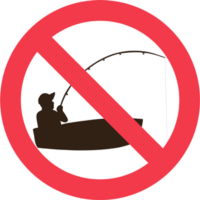By Doug Cross | Guest Commentary
 When the Coastal Conservation Association was pushing House Bill 1713 in June of 2010, I guarantee you they never, ever thought the law would one day affect the recreational fishing interests in North Carolina like it has now.
When the Coastal Conservation Association was pushing House Bill 1713 in June of 2010, I guarantee you they never, ever thought the law would one day affect the recreational fishing interests in North Carolina like it has now.
You see, House Bill 1713, is the law that mandates any species that is deemed overfished, or where overfishing is occurring, be managed with a 50 percent probability to end the overfishing inside a two-year window and that the species be restored to a sustainable harvest level inside 10 years.
This is the law that has caused so much anger against the North Carolina Marine Fisheries Division for closing down the 2024 recreational flounder season.
This law, pushed by the Coastal Conservation Association, is the reason you do not have a recreational fishing season on flounder. Not the Commercial Fisherman or any other group. THIS LAW IS THE REASON.
When the law was first introduced, it was thought by these groups that this would be the demise of the commercial fisherman – that they would overfish their limits and be called out on the process that would end their season.
That hasn’t happened because the commercial side has abided by their quota and stopped as directed by the Division when their season closed. The recreational side, however, has overfished their quota horribly the last two years. Dead discards (fish thrown back that die) were the major factor.
The flounder management plan makes the Division count these discards against the quota – along with quota caught – to be applied against the following year’s quota allotment.
So now there is not enough quota to open the season on. This should not come as a shock. It was widely discussed and debated, as the process went through, that this could happen. The “derby style” fishing created led exactly where many of us feared it would. It created a competitive drive to catch all the flounder the recreational side could right out of the gate and the NCDMF could not close the season quick enough to avoid the overages that occurred.
This would have been a lot worse if the state hadn’t knowingly underestimated the average weight of the dead discards, using an average weight of just .21 pounds or one fifth of a pound for the average dead discard. This was a ridiculous calculation and the dead discards would have been triple or more. Even in the second year, with the reductions down to one fish, the same derby style caused overages again that have now come home to roost and caused the season to be shut down. The commercial fishery will be open, but it will be shut down the moment any quota is nearly reached.
With this situation, and the anger and dismay resulting from it, the Coastal Conservation Association has once again resumed their favorite tactic. Anger the Mob to make the most noise and blame the commercial interest for it. Do not look in the mirror and blame the real cause of this – the CCA and all its satellite friends. They introduced and pushed this action. They have lived off membership and wealthy donors and all the while they are working against them.
The only way to promote themselves is through situations, just like this one, that they can draw out the enraged average citizen, that most of the time is listening to propaganda, rather than looking for the facts, to make their noise and try to sway the legislators to act against the commercial fishing industry that had nothing to do with this result.
The main conversation you will hear against any action is: “There are plenty of fish (in this case flounder) everywhere, why do we need any kind of closure?” To answer this question is like trying to argue the origins of the universe. The only answer I can give is that the marine species are overseen and governed by our NCDMF. They are charged with managing these fisheries and do the best with the DATA that they have at their disposal. When you say DATA, then that can get really shaky.
A lot of the recreational fishery plans are constructed, partially, by using what is called a MRIP (Marine Recreational Information Program) survey. This is supposed to give fishery managers landing and release data that is acquired through landings and mail interviews. I have heard countless times that no one ever gets interviewed or that the data is wrong or worthless. I will not argue this either way, but a lot of recreational interests and their representatives on commissions and councils have praised its use in the past.
The commercial side has a daily trip ticket that must be turned in by law, every day they work and land a commercial species. A survey is just that, a survey to gather info that is susceptible to interpretation. A daily catch record is just that – a fact sheet that has no guess work. The new reporting law just passed by the state should help with this situation. You will be required to report (daily) your capture of fish. This will give the division hard data that is real time, rather than waiting on a survey whose results put them way behind when trying to manage the next year’s season.
The bottom line is that this flounder closure is the result of a law, championed by the CCA and friends and passed in 2010. Not a result of any commercial fishing actions, and certainly not squarely on the NCDMF. Look at the ones who pushed this. Look at why they push situations like this. It’s pretty simple, to rile up the mob, to get their agenda in the spotlight, and always…always blame it on the commercial fisherman. This way they can justify themselves to their members, they are working for them when in fact they are the cause in many situations, especially this one. The troubling part of this whole situation is that many fishermen, who know these facts, who know who is really to blame, still blindly follow the rhetoric and seek to end the commercial fisherman’s ability to provide for their families and the consumers they support. Which by the way is not a constitutional right to fish for, or support, the consumers of this state, according to one recreational supporter. But that’s for another article.
You need to know the facts, not just listen to the mob for clarification, and know who is to blame, before you point the blame at anyone. The facts in this article are undeniably true. In the case of your so-called recreational representatives (and I use that jokingly because they truly are not) BE CAREFUL WHAT YOU WISH FOR.









































